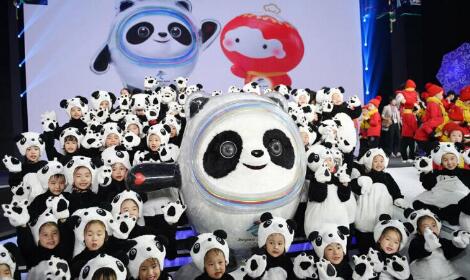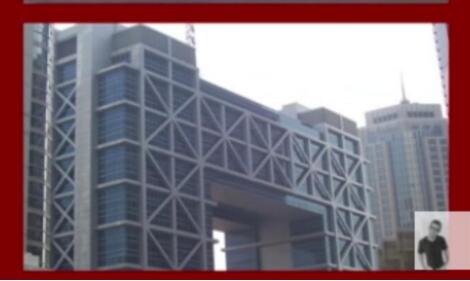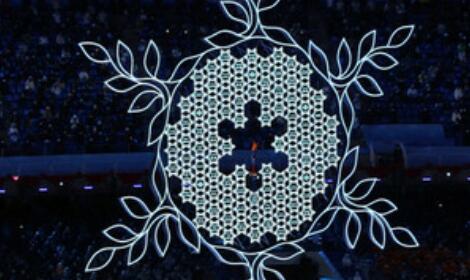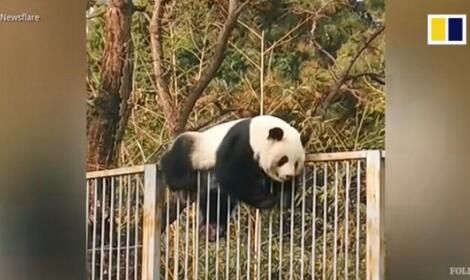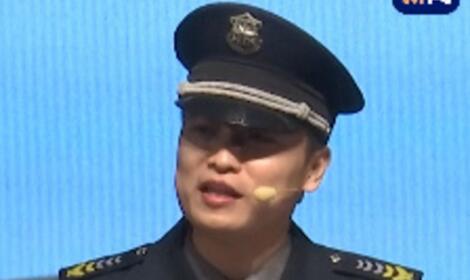1598年,朝鲜使者和越南使者在明朝北京的一场“笔谈”
正文翻译
What were some interactions between Vietnam and Korea during the pre-colonial period?
在前殖民时期,越南和朝鲜之间有哪些互动?
在前殖民时期,越南和朝鲜之间有哪些互动?
评论翻译
Běijīng, where they met
Yi Su-gwang (李睟光 - 이수광), a Korean envoy, having Brush Talk (笔谈) with Phùng Khắc Khoan (冯克宽), his Vietnamese counterpart in Běijīng in 1598. (From Vietnamese and Korean Mission Exchanges in Běijīng: From 15th to 18th Centuries)
The questioning begins when Yi asks Phùng to verify Yi’s knowledge of early Vietnam’s history, in the process demonstrating that Yi was apparently already quite well informed about his counterpart’s place of origin. Phùng’s reply to this first question, as to most of the others, is typically terse, or perhaps modest.
(Yi) Question: In ancient times, Việt Thường and Giao Chỉ were territories of your state, were they not?
(Phùng) Answer: Yes. This is so.

北京,这是他们相遇的地方
李睟光,一位朝鲜特使,和他的越南同行冯克宽于1598年在北京进行了一场“笔谈”(来自越南和朝鲜的北京使团交流会:15-18世纪)。
对话一开始,李睟光就提出了一些越南历史知识让冯克宽验证,在这个过程中,可见李睟光对越南有一定的了解。冯克宽对这第一个问题的回答和对其他大多数问题的回答一样,很简略,或者说是谦虚。
(李)问:古之越裳交趾,是贵国疆域否?
(冯)答曰:是也。
The only type of recorded personal question Yi directed to Phùng is a detached, routine inquiry concerning his official duties, to which Yi receives another very terse reply. In so far as Confucian “tradition” customarily placed esteem for others ahead of concern for oneself in social situations and autobiography never developed as a literary genre in the Chinese cultural sphere, this sort of reply might not be completely unexpected.
(Yi) Question: What is your official position?
(Phùng) Answer: I have long served my humble state in an official capacity.
唯一记录在案的李睟光向冯克宽提出的个人问题是一个关于他的公务的例行询问,李睟光得到了另一个非常简短的答复。由于儒家的"传统"习惯于在社会环境中把对他人的尊重置于对自己的关注之上,而自传在中国文化领域从未作为一种文学体裁发展起来,这种回答可能并不完全出乎意料。
(李)问:大人何官?
(冯)答曰:愚老在贱国忝侍郞职。
Yi then asks about the government and customs of Vietnam. The answer he receives is disappointing in its lack of detail—even disjointed—but, to Yi, it perhaps was important for its affirmation of one of Vietnam’s similarities to Korea: its Confucian heritage.
(Yi) Question: What is the governing system and what are the customs of your state?
(Phùng) Answer: We study the teachings of Confucius and Mencius, The Book of Poetry, The Book of Rites, and music. We also use the learning of Táng and Sòng in the Metropolitan Exam.
然后,李睟光问起了越南的政府和习俗。他得到的回复令人失望,因为缺乏细节,甚至有点离题,但是,对李睟光来说,这也许很重要,因为它肯定了越南与朝鲜的一个相似之处:儒家传统。
(李)问:贵国官制风俗何如?
(冯)答曰:习孔孟、诗书、礼乐之敎。唐宋进士科擧之文。
Because of the fact of Phùng’s presence in Běijīng as an envoy and his knowledge of written Chinese, Yi could have presumed certain institutional similarities were shared between Korea and Vietnam. The institution he specifically asks about here is the civil and military examinations. In Phùng’s reply, the Vietnamese Confucian examination process as he describes it, though at variance from other sources on this period, probably would have revealed to Yi that the Vietnamese examinations, despite some obvious differences, in both the civil and military branches are more similar to the Chinese than to the Korean.
(Yi) Question: Do you choose people for the bureaucracy on the basis of their poetry and compositions or on the basis of questions and themes? In addition, do you have a military examination?
(Phùng) Answer: We do choose people on the basis of examinations. There is a provincial examination in two parts. The provincial examination is the first stage. In the first part, the examination is on the Five Classics and Four Books. In the second stage, one of the parts of the examination is on uating imperial decrees and royal edicts. In the third stage, poetry forms a part. In the fourth stage, the theme requires a response on the best way to rule the country. For the general examination, there are first, second, third and fourth stages. It is like the provincial examinations. In the fifth stage, there is the palace examination, which requires composition and the reply to questions. As for the military examination, the examinees’ use of strategy is most important. There are talent competitions in horseback riding, elephant riding and shooting from horseback. Candidates are chosen every five years.
由于冯克宽作为特使出现在北京,而且他了解书面中文,因此李睟光以此推测朝鲜和越南之间有某些制度上的相似之处。他在这里具体询问的是文武考试的机制。在冯克宽的回答中,他所描述的越南儒家考试过程,虽然与这一时期的其他资料不不尽相同,但可能会向李睟光透露,越南的考试,尽管有一些明显的差异,但在文职和军事部门,和中国的考试比朝鲜的更相似。
(李)问:取人以诗赋乎,以策论乎?亦有武擧否?
(冯)答曰:科擧取人法。有鄕试科。有会试科鄕。试科第一场,试五经四书各一道。第二场,诏制表文各一道。第三场,诗赋各一道。第四场,策文古今治道一题。会试科第一、第二、第三、第四场,同鄕试。第五场,廷试策对。武科以阵前爲上,有骑马、骑象、骑射之才。五年一选。
Yi Su-Gwang, a Korean sarim, a military official, and a diplomat of the Joseon Dynasty
Su-gwang was not only relatively well informed about Vietnam’s early history, but he was also evidently conversant with some of its more recent events, as his next question concerning the Mạc dynasty interregnum demonstrates. Through information obtained by its embassies to China prior to 1597-1598, the Korean government had already become aware of the circumstances of the earlier Míng invasion and occupation of Vietnam (1407-1427), as well as the Mạc coup in 1527.
(Yi) Question: I have heard that the surname of the former king of your state was Mạc. Has the Lê family now resumed its duty as head of state? Was there a disturbance or a coup?
Since he was in Běijīng to seek the restoration of the legitimacy of the Lê, Phùng’s reply to this question amounts to his mission’s statement of purpose.
(Phùng) Answer: Our state was formerly ruled by the Lê kings. The Mạc family carried out an insurrection and ruled after them. Now the Lê house has resumed its former position and is seeking investiture from the Chinese emperor.
Still wishing to pursue the events surrounding the Lê restoration, Yi asks for further information and adds a second question. Phùng’s answer, though again brier, is approximately accurate.
(Yi) Question: For how long did the Lê house lose the kingship of the state? When did they regain their former position?
(Phùng) Answer: It was for a period of fifty years.

李睟光,朝鲜王朝的士林派,军事官员和外交官
李睟光不仅对越南的早期历史比较了解,而且他显然对越南的一些近期事件也很熟悉,正如他的下一个关于莫氏王朝的问题所表明的。通过1597-1598年之前的驻华使节获得的信息,朝鲜政府已经了解到了先前明朝入侵和占领越南(1407-1427)的情况,以及1527年莫朝的政变。
(李)问:旧闻贵国王是莫姓。今黎氏乃创业之主耶?有何变乱而革命耶?
(冯)答曰:前者贱国是黎王管封,后爲莫氏簒僭。今黎氏复旧业,再请封。
李睟光仍然希望继续了解围绕黎氏复辟的事件,他要求提供进一步的信息,并增加了第二个问题。冯克宽的回答,虽然又是干巴巴的,但大致准确。
(李)问:黎王失国几年?始复旧物?
(冯)答曰:经五十余年。
In his next question, Yi inquires about a particular title bestowed by the Míng on the Mạc rulers of Vietnam. When the Mạc came to power, even though they submitted to the Míng, Vietnam’s status within the tribute system was reduced from that of a monarchy to a form which harkened back to the Hàn colonial designation “The Pacified South,” or An Nam (安南). This form, known in Chinese as Dūtǒngshǐ (都统使), was in effect a “pacification system,” which imposed a lower status on Vietnam, but still recognized that Vietnam was above an aboriginal office, in that it was administered by Confucian literati, not by tribal chiefs, such as were the Burmese, Shan, Tai, and Lao.
(Yi) Question: Does your state have a “pacification commander”?
(Phùng) Answer: Ever since we have had a state, the title of “pacification commander” had never existed. That title was a special feature of the Mạc insurrection and their rise to power. The Celestial Empire was generous by not putting them to death. The title is temporary and carries a second grade status, because it is dependent upon the holder’s abilities. Now the king is seeking deliberation and a decision regarding the disposition of this title.
(Yi) Question: Is there a Mạc Mậu Hợp who is a member of this Mạc family of whom you have been speaking?
(Phùng) Answer: Government officials were uneasy with him for a long time. But the name, Mạc Mậu Hợp, is that of the former king. I am surprised that you knew of him.
在他的下一个问题中,李睟光询问了明朝授予越南莫朝统治者的一个特殊称号。当莫氏掌权时,尽管他们臣服于明朝,但越南在朝贡体系中的地位却从君主制降至另一种形式,即回到汉朝殖民时期的称号"安南"(安定南方)。这种形式在中文中被称为"都统使",实际上是一种"安抚制度",它给越南强加了较低的地位,但仍然承认越南高于原住民的地位,因为它是由儒家文人管理的,而不是像缅甸、掸邦、泰邦和老挝那样由部落酋长管理。
(李)问:贵国有都统使?是何官职?
(冯)答曰:贱国自古有国以来,未尝有都统使司之职。特以莫氏僭逆。天朝宥以不死。权置都统使司,秩从二品,以待叛臣耳。如今要复王封,廷臣方议定恩赏。
(李)问:莫氏是莫茂洽耶?
(冯)答曰:使臣乃惊视良久,然莫茂洽乃其故王姓名。盖讶其知之也。
At this point, Yi inserts a comment stating that, because of his curiosity about this person, Phùng had offered the information that Mạc Mậu Hợp was the name of one who had recently been the king of Vietnam.
Yi then once again pursues his previous questioning on the issue of civil unrest and whether there had been any in connection with the resumption of Lê rule.
(Yi) Question: When the Lê king retook control of the state, did he have to put down a disturbance, or did he simply resume his position?
(Phùng) Answer: The Lê king succeeded the Trần family, but he did not perform the sacrifices. The people all pressed for his advancement and accession.
说到这,李睟光插入了一个评论,说他对这个人有点好奇,冯克宽解释了莫茂洽是一个最近成为越南国王的人的名字。
然后,李睟光再次追问他之前关于内乱的问题,以及是否有任何与恢复黎氏统治有关的问题。
(李)问:黎王得国,是讨乱逆耶,抑出推戴耶?
(冯)答曰:黎王是代陈氏,不祀。国人共推戴。
Yi’s following question is seemingly straightforward, but it is one which in effect sounds out Phùng on dynastic loyalty. For contemporary Vietnamese literati, however, this question would have presented some ambiguity as regards their position in Vietnam just a few years before.
(Yi) Question: In what capacity did you serve the Mạc family and their court?
Phùng’s reply is constructed to fit with the sense of Confucian morality that both he and Yi largely shared. As a Lê official, Phùng would have been assumed to be loyal to that dynasty. The ambiguity that Phùng does not divulge is that most of the Đông Kinh literati had supported the Mạc usurpation, just as perhaps most of their predecessors had supported the Míng occupation in the early fifteenth century. It should also be pointed out that when Phùng went to Míng as an envoy in 1590, he would have to have gone under the auspices of a Mạc, not a Lê, ruler.
(Phùng) Answer: Having for a long time been a subject of the Lê house, even when it was out of power, I did not serve the Mạc in any official capacity.
李睟光下面的问题似乎很直接,但它实际上是一个关于王朝忠诚度的问题,也就是对冯克宽的质疑。然而,对于当时越南文人来说,这个问题会由于几年前他们在越南的立场而产生一些含糊之处。
冯克宽的回答是为了符合他和李睟光基本共享的儒家道德感。作为一名黎朝官员,冯克宽被认为是应该忠于该王朝的。冯克宽没有透露的含糊之处在于,当时大多数东京的文人都支持莫氏的篡夺,就像他们的大多数前辈在15世纪初支持明朝的占领一样。还应指出的是,当冯克宽于1590年作为特使前往明朝时,他肯定是在莫氏统治者而非黎氏统治者的支持下前往的。
(李)问:大人在莫氏朝仕爲何官?
(冯)答曰:愚老是黎氏遗臣,未尝仕莫。
Phùng Khắc Khoan, a Vietnamese military strategist, politician, diplomat, and poet of the Lê dynasty
As a relief from the inquiry into high, state-related matters, in his next two questions, Yi’s interest shifts to Vietnam’s natural environment and agriculture. Such an inquiry is arresting, because Yi was later to be regarded as one of Korea’s leading Silhak scholars, who took natural phenomena and the improvement of agriculture as among their primary interests.
(Yi) Question: In your state, the winter is as warm as spring. It is said you have no ice or snow. Is this to be believed?
(Phùng) Answer: In the south, the days are mostly like spring and the winter is brief.
(Yi) Question: In addition, your state has a rice harvest twice a year and produces eight kinds of silk from your sericulture. Is this to be believed?

黎朝的越南军事战略家、政治家、外交家和诗人冯克宽
在接下来的两个问题中,作为前面对国家高层事务调查的一种缓解,李睟光的兴趣转移到了越南的自然环境和农业。这样的调查是引人注目的,因为李睟光后来被认为是朝鲜“实学”的先驱之一,这些学者把自然现象和农业的改善作为他们的主要兴趣之一。
(李)问:贵国冬暖如春,无氷无雪云。信否?
(冯)答曰:南天春多冬少。
(李)问:贵国有再熟之稻,八蚕之丝。信否?
In this instance, the spare, but adequate, reply that Phùng offers to Yi’s question might be interpreted as indicative of a mind here turned to the ponderous state of Vietnam’s agriculture. One historian has found that, due to agricultural failures and severe pestilence, the fourteen-year interval from 1561 to 1610 “was perhaps the longest period of disaster in Vietnamese history.”
(Phùng) Answer: From our fields, we harvest rice and barley twice a year. We do have eight kinds of silk.
After this exchange, Yi turns to questions about Vietnam’s land area and geolocation in regard to China.
(Yi) Question: What is the size of your state?
(Phùng) Answer: Our state measures more than 5,000 lí.
(Yi) Question: How many ri is it from your state to Yúnnán?
(Phùng) Answer: We are separated from Yúnnán by numerous mountains where our borders adjoin.
这一次,冯克宽对李睟光的问题所做的简短但充分的回答可以被解释为表明他在这里对越南农业的深思熟虑的态度。一位历史学家发现,由于农业失败和严重的瘟疫,从1561年到1610年的五十年间,"可能是越南历史上最长的灾难时期"。
答曰:岁有再熟之稻麦,有八蚕之丝麻。
在这一交流之后,李睟光转向了关于越南的土地面积和与中国有关的地理位置的问题。
(李)问:贵国地方几许?
(冯)答曰:地方五千余里。
(李)问:贵国距云南几里?
(冯)答曰:隔山千重,接壤一界。
It would seem that, given the knowledge about Vietnam that Yi has already demonstrated and has just received from Phùng, he should have been able to surmise its general geographic location, including the fact that it was far removed from Japan, Given that, his question to Phùng about the proximity of Japan to Vietnam seems probing or more relevant to Korean and Chinese concerns than to Vietnamese ones. Phùng’s answer may simply have assured Yi of what he already knew.
(Yi) Question: How many ri distant is your state from the Ryūkyū Islands and Japan?
If other than official contact between Japan and Vietnam is considered, Phùng’s reply to this question is disingenuous, in that since at least the early 1400s Vietnam had been trading far and wide in ceramic wares with a number of countries, including Japan.
(Phùng) Answer: We are divided from them by the sea. They are distant and we do not have contact with them.
看来,考虑到李睟光已经展示出来的和刚刚从冯克宽那里得到的关于越南的知识,他应该能够推测出其大致的地理位置,包括它远离日本的事实。冯克宽的回答可能只是让李睟光确认了他已经知道的事情。
如果考虑到日本和越南之间官方以外的接触,冯克宽对这个问题的回答是虚伪的,因为至少从14世纪初开始,越南就已经与包括日本在内的许多国家进行了广泛的陶瓷器皿贸易。
(李)问:距琉球日本几里?
(冯)答曰:隔海道,远不通。
Finally, Yi asks Phùng about the legendary bronze pillars which may have been erected in northern Vietnam by the Hàn general Mǎ Yuán in 43 C.E. This is something of an astonishing display of knowledge of Vietnamese history on Yi’s part, but is again probably a result of his having read Hàn dynastic history. According to several accounts, the intent of the placement of these pillars, the exact location, size and number of which is unclear, was to commemorate General Mǎ’s suppression of a revolt in what was then the southern extreme of the Hàn empire, but well within the territory of what is now the northern part of Vietnam. Reflecting on this much earlier event and Yi’s question concerning it, the implication of this question to his sixteenth century Vietnamese counterpart can only be conjectured, but it suggests the reach and military might of China.
(Yi) Question: As to Mǎ Fúbō’s bronze pillars, where are they located?
(Phùng) Answer: According to old legends, they were in Mê Linh. They are not there now.
最后,李睟光向冯克宽询问了传说中的铜柱,这些铜柱可能是由汉朝将军马援于公元43年在越南北部设立的。李睟光可能自认为这是对越南历史知识惊人的展示,但也可能是他阅读汉朝历史的结果。根据一些说法,放置这些柱子的意图(具体位置、大小和数量不清楚)是为了纪念马将军镇压了当时汉帝国最南端的叛乱,但远在现在越南北部的领土内。考虑到这已经是很久以前的事情以及李睟光问起了它,说明了其对16世纪的越南同行的了解多是猜测,但它表明了中国的影响力和军事力量。
(李)问:马伏波铜柱,竖在何地?
(冯)答曰:古传在于梅岭。今无矣。
Yi closes the transcxtion of his written conversation with Phùng by briefly summarizing the questions the Vietnamese envoy had asked of him.
The Vietnamese envoy asked what the laws and system of our state were. I answered that we are governed by officials and regulations. In accord with the Celestial Empire, our officials are arranged in three ranks and six departments in ascending levels. As for our other laws and systems, they all respect the usages of China. The Vietnamese envoy commented, “Korea has long been regarded as a state gifted in the literary arts. My humble state cannot dare to approach its respect.”
在他与冯克宽的书面谈话记录的最后,李睟光简要地总结了越南特使向他提出的问题。
其使臣问我国制度如何,答以官制倣天朝。置三公六部台省。自余法度,悉遵用华制。使臣曰:“贵大国旧称文献之国,贱国非敢望也”。
In a commentary which serves as a postscxt to his exchange with Phùng, Yi adds the following self-assured, perhaps even proud, but nonetheless factual, statement on the Chinese emperor’s morning audience for the foreign envoys. It might be possible to regard Yi’s comment as expressing either sympathy toward Vietnam or as suggesting that competition for imperial favor existed between Korea and Vietnam. Yet, Yi should undoubtedly have been aware that the hierarchical ranking of tributary states that he is commenting on at this particular audience was not an imperial whim, but followed a preset arrangement of longstanding that the Míng was simply perpetuating.
At the morning audience with the emperor, our state’s delegation took a position at the front of the procession. According to the way in which the envoys were arrayed, those from An Nam were placed more distantly. I determined that the significance of this was that their tribute was humble.
在作为他与冯克宽交流的后记的评论中,李睟光补充了以下关于中国皇帝早上接见外国使节的自信,也许甚至是骄傲,不过也是陈述事实。人们可能会认为李睟光的评论是在表达对越南的同情,或者是在暗示朝鲜和越南之间存在着对帝国恩宠的竞争。然而,李睟光无疑应该知道,他在这次觐见中所评论的朝贡国的等级划分并不是帝国的突发奇想,而是遵循了长期以来的预设安排,明朝只是在延续这种安排。
朝会时,我国使臣爲首立于前行。安南使臣次于后行。相接之际,每致恭逊之意。
Guodong Xing
Great post, thank Tim! I can understand what those 2 officials from Vietnam and Korea were talking about from the exact Chinese they were writing four hundred years ago. Feel great.
很好的帖子,谢谢蒂姆! 我可以从四百年前那两位来自越南和朝鲜的官员所写的中文中准确地理解他们在说什么。这种感觉很好。
Mark Smith
Their Classical Chinese is so elegant and fluent. It was a joy reading it just like reading other Classical Chinese works.
他们的古典汉语是如此优雅和流畅。阅读它就像阅读其他中国古典作品一样,是一种乐趣。
Le Vu Hoang Minh
Great answer from Tim.
The big take away is how much more efficient Chinese is compared to English. The amount of space English takes to express this record in Chinese is at least 10 fold.
蒂姆的回答很棒。
最大的收获是,与英语相比,汉语的效率要高得多。英文表达这条记录所需的空间至少是中文的10倍。
Meno Speakenglish
Paper was expensive after all
毕竟纸贵啊
Nico Aguilar
Japanese may use kana alongside Kanji, but that too tends to be more efficient than English when it comes to recording space. Even so, what were some instances of premodern contact between Vietnam & Japan (excluding the Ryukyu Kingdom)?
日本人可能会在使用汉字的同时使用假名,但在记录所需空间方面,也往往比英语更有效。说到这,越南和日本(不包括琉球王国)之间有哪些现代以前接触的事例吗?
Le Vu Hoang Minh
Check out Hoi An with its iconic Japanese covered bridge and pagoda Hội An - Wikipedia
Vietnam and Japan has been trading for centuries.
看看会安的标志性日式有顶桥和宝塔:会安 - Wikipedia
越南和日本的贸易已经有几个世纪了。
An Khanh Tung
The Joseon guy was obviously trying to play smart here. While humility is good, I think Phùng should have been more proactive and taught this Joseon guy a lesson of humility. How about the Imjin War for a start?
那个朝鲜人显然是想在这里装逼。虽然谦虚是好事,但我认为冯克宽应该更主动一些,给这个朝鲜人上一堂谦虚的课。比如从壬辰卫国战争开始问起?
Alex Kim
Why would you say that? There’s nothing here that suggests that the envoy was putting the Vietnamese envoy down beyond probing about Vietnam’s political change.
你为什么要这么说?这里没有任何东西表明该特使除了探究越南的政治变化外,有折辱越南特使的意思。
Thanks for reporting my comment. Okay cite where in this interaction has tones of patronization or “playing smart.”
Your gratuitous anger and hate is too obvious.
谢谢你举报我的评论昂。好吧,请举出在这次互动中哪里有自傲或"装逼"的语气。
你无端的愤怒和仇恨太过明显了。
Jaehan Park
Phạm Gia Cường (Victor Pham)
Vietnam has positive relations with Japan… we don’t bother each other that much. But Japan and Korea hate each other. Vietnam doesn’t feel that way with Japan.
越南与日本有着积极的关系......我们之间没有那么多纷扰。但日本和韩国相互憎恨。越南对日本没有这种感觉。
Hoàng Phan
You should add the story of Lý Long Tường escaping Việt Nam to Korea.
你应该加上李龙祥(注:越南李朝的一位皇子,后来成为高丽王朝的一个将领。他是韩国花山李氏的始祖。)逃离越南到韩国的故事。
Tim Tran
That one is too common. I don't wanna be a cliche lol.
这个太常见了。我不想成为一个老生常谈的人,笑。
Dan Le
Not much at all. During pre-colonial period, Vietnam only had relationships with neighbors (Emperors) China, Lao and Cambodia
联系不多,在前殖民时期,越南只与邻国(皇帝)中国、老挝和柬埔寨有所联系。
问题:What is the relationship like between Vietnam, China, Korea, and Japan?
越南、中国、韩国和日本之间的关系是怎样的?
Tim Tran
China-Vietnam: bad
China-Korea: eh
China-Japan: bad
Vietnam-Korea: good
Vietnam-Japan: good
Korea-Japan: bad
At least that's how I see it. Feel free to correct me. But I'm only talking politically and economically here, because there are multiple layers. Culturally, that's a very different relationship.
Vietnam loves Chinese, Japanese, and Korean cultures.
China loves Korean and Japanese cultures and knows nothing about Vietnamese culture.
Korea loves Japanese culture and admires Chinese culture (but doesn't really care) and likes Vietnamese culture.
Japan likes Korean culture and admires Chinese culture but doesn't know much about Vietnamese culture.
中国-越南:不好
中国-韩国:呃
中国-日本:不好
越南-韩国:好
越南-日本:好
韩国-日本:不好
至少我是这样认为的。随时可以纠正我。但我在这里只谈政治和经济,因为存在多个层面。在文化上,关系则非常不同。
越南喜欢中国、日本和韩国的文化。
中国喜欢韩国和日本文化,对越南文化一无所知。
韩国喜欢日本文化,欣赏中国文化(但并不真的很在意),喜欢越南文化。
日本喜欢韩国文化,欣赏中国文化,但对越南文化不甚了解。
Chen Zhigong
China doesn‘t “love” Japanese or Korean cultures, it’s more like China respect their cultures but the majority of Chinese ppl really don’t care much about them.
中国并不"爱"日本或韩国的文化,更像是中国尊重他们的文化,但大多数中国人真的不怎么关心他们。
James Lansdowne
I think the last part about what they ‘love’ (for all of them) was less about culture as a whole and more about pop culture. The Korean Wave. Which last I heard had been very successful in China. Japanese media I don’t know as much about. Do Chinese kids like Pokemon?
我认为最后说他们"爱"的部分(对他们所有人来说),与其说是对整个文化的爱,不如说是对流行文化的爱。韩流,我听说在中国非常成功。日本媒体我就不太了解了。中国孩子喜欢口袋妖怪吗?
Xu Lucy
I didn’t even know Vietnamese culture share a lot of similarities with Chinese culture except for the communism part (which is originally from Germany and Russia) until I moved to Canada. I always thought Vietnamese culture is similar to Thai culture.
我甚至不知道越南文化与中国文化有很多相似之处,除了共产主义那部分(最初来自德国和俄罗斯),直到我搬到加拿大。我一直以为越南文化与泰国文化相似。
Cheong Tee
That’s why the OP said “[China] knows nothing about Vietnamese culture”. But Vietnamese are keen observers of China and may hyper -react.
这就是为什么OP说"[中国]对越南文化一无所知"。但越南人对中国有着敏锐的观察力,甚至可能会有过度反应。
Trinh Nguyen
Very true and I must say a big part is because of Chinese drama and Cpop. Just like how many are obsessed with Kpop and Kdrama now.
非常正确,我必须说很大一部分是由于中国电视剧和中国明星。就像现在有很多人痴迷于韩国明星和韩国电视剧一样。
Cheong Tee
Pop culture would be a positive part of the awareness, but what’s disturbing more is how the ultra nationalists would still propagate the paranoia about “frequent China invasion” to even nowadays. The issue is that the Vietnam government needs to maintain popularity by keeping the conflict ghost of Paracel alive, and the challenge of domination over Spratly is on-going.
流行文化是积极的一部分,但令人不安的是,极端民族主义者甚至到现在还在宣传"中国频繁入侵"的妄想。问题是,越南政府需要通过保持西沙的幽灵冲突来维持人气,而且对南沙的统治挑战仍在继续。
Who Ever
It is very ridiculous to hear that Koreans love Japanese culture and even admire Chinese culture.
Koreans do respect Japanese and Chinese culture but thats it.
Koreans used to like Japanese culture and somehow its still true as many Koreans like Japanese animations and comics. But their interest is very limited to anime and comics and not expanded to other Japanese culture such as Jpop, Jdrama andJfashion.
As for Chinese culture, most Koreans wouldn’t even be able to name even a single Chinese drama, song or actor. Hongkong movies and movie stars were once very popular in Korea back in 1980s and early 1990s but it’s about 30 years ago. Unfortunately, young generations aren’t interested in Chinese culture.
Koreans’ interest
Korean culture >>>>>>>>> American >>> Japanese >>> Chinese
听到韩国人喜欢日本文化,甚至崇拜中国文化,这真是太可笑了。
韩国人确实尊重日本和中国文化,但仅此而已。
韩国人曾经喜欢日本文化,而且在某种程度上仍然是真的,因为许多韩国人喜欢日本的动画和漫画。但他们的兴趣仅限于动画和漫画,而没有扩展到其他日本文化,如日本明星、日本电视剧和日本时尚。
至于中国文化,大多数韩国人甚至说不出任何一部中国电视剧、歌曲或演员的名字。香港电影和电影明星曾在1980年代和1990年代初在韩国非常流行,但那是30年前的事了。不幸的是,年轻一代对中国文化并不感兴趣。
韩国人的兴趣:
韩国文化 >>>>>>>>> 美国>>日本>>中国
Cheong Tee
Do Koreans really know and like Vietnam culture? What aspects of Vietnam culture may Korea like?
韩国人真的了解和喜欢越南文化吗?韩国可能喜欢越南文化的哪些方面?
Gyuhyeon Kim
As Korean, We don't interests in Vietnam culture. Yes, We like Vietnam food and trip to Vietnam but I think it doesn't mean 'culture.' I don't know anybody who knows Vietnam's song, drama, movie, celebration.
作为韩国人,我们对越南文化不感兴趣。是的,我们喜欢越南的食物和去越南旅游,但我认为这并不意味着"文化"。我不知道有谁知道越南的歌曲、电视剧、电影、时尚。
Yi Su-gwang (李睟光 - 이수광), a Korean envoy, having Brush Talk (笔谈) with Phùng Khắc Khoan (冯克宽), his Vietnamese counterpart in Běijīng in 1598. (From Vietnamese and Korean Mission Exchanges in Běijīng: From 15th to 18th Centuries)
The questioning begins when Yi asks Phùng to verify Yi’s knowledge of early Vietnam’s history, in the process demonstrating that Yi was apparently already quite well informed about his counterpart’s place of origin. Phùng’s reply to this first question, as to most of the others, is typically terse, or perhaps modest.
(Yi) Question: In ancient times, Việt Thường and Giao Chỉ were territories of your state, were they not?
(Phùng) Answer: Yes. This is so.

北京,这是他们相遇的地方
李睟光,一位朝鲜特使,和他的越南同行冯克宽于1598年在北京进行了一场“笔谈”(来自越南和朝鲜的北京使团交流会:15-18世纪)。
对话一开始,李睟光就提出了一些越南历史知识让冯克宽验证,在这个过程中,可见李睟光对越南有一定的了解。冯克宽对这第一个问题的回答和对其他大多数问题的回答一样,很简略,或者说是谦虚。
(李)问:古之越裳交趾,是贵国疆域否?
(冯)答曰:是也。
The only type of recorded personal question Yi directed to Phùng is a detached, routine inquiry concerning his official duties, to which Yi receives another very terse reply. In so far as Confucian “tradition” customarily placed esteem for others ahead of concern for oneself in social situations and autobiography never developed as a literary genre in the Chinese cultural sphere, this sort of reply might not be completely unexpected.
(Yi) Question: What is your official position?
(Phùng) Answer: I have long served my humble state in an official capacity.
唯一记录在案的李睟光向冯克宽提出的个人问题是一个关于他的公务的例行询问,李睟光得到了另一个非常简短的答复。由于儒家的"传统"习惯于在社会环境中把对他人的尊重置于对自己的关注之上,而自传在中国文化领域从未作为一种文学体裁发展起来,这种回答可能并不完全出乎意料。
(李)问:大人何官?
(冯)答曰:愚老在贱国忝侍郞职。
Yi then asks about the government and customs of Vietnam. The answer he receives is disappointing in its lack of detail—even disjointed—but, to Yi, it perhaps was important for its affirmation of one of Vietnam’s similarities to Korea: its Confucian heritage.
(Yi) Question: What is the governing system and what are the customs of your state?
(Phùng) Answer: We study the teachings of Confucius and Mencius, The Book of Poetry, The Book of Rites, and music. We also use the learning of Táng and Sòng in the Metropolitan Exam.
然后,李睟光问起了越南的政府和习俗。他得到的回复令人失望,因为缺乏细节,甚至有点离题,但是,对李睟光来说,这也许很重要,因为它肯定了越南与朝鲜的一个相似之处:儒家传统。
(李)问:贵国官制风俗何如?
(冯)答曰:习孔孟、诗书、礼乐之敎。唐宋进士科擧之文。
Because of the fact of Phùng’s presence in Běijīng as an envoy and his knowledge of written Chinese, Yi could have presumed certain institutional similarities were shared between Korea and Vietnam. The institution he specifically asks about here is the civil and military examinations. In Phùng’s reply, the Vietnamese Confucian examination process as he describes it, though at variance from other sources on this period, probably would have revealed to Yi that the Vietnamese examinations, despite some obvious differences, in both the civil and military branches are more similar to the Chinese than to the Korean.
(Yi) Question: Do you choose people for the bureaucracy on the basis of their poetry and compositions or on the basis of questions and themes? In addition, do you have a military examination?
(Phùng) Answer: We do choose people on the basis of examinations. There is a provincial examination in two parts. The provincial examination is the first stage. In the first part, the examination is on the Five Classics and Four Books. In the second stage, one of the parts of the examination is on uating imperial decrees and royal edicts. In the third stage, poetry forms a part. In the fourth stage, the theme requires a response on the best way to rule the country. For the general examination, there are first, second, third and fourth stages. It is like the provincial examinations. In the fifth stage, there is the palace examination, which requires composition and the reply to questions. As for the military examination, the examinees’ use of strategy is most important. There are talent competitions in horseback riding, elephant riding and shooting from horseback. Candidates are chosen every five years.
由于冯克宽作为特使出现在北京,而且他了解书面中文,因此李睟光以此推测朝鲜和越南之间有某些制度上的相似之处。他在这里具体询问的是文武考试的机制。在冯克宽的回答中,他所描述的越南儒家考试过程,虽然与这一时期的其他资料不不尽相同,但可能会向李睟光透露,越南的考试,尽管有一些明显的差异,但在文职和军事部门,和中国的考试比朝鲜的更相似。
(李)问:取人以诗赋乎,以策论乎?亦有武擧否?
(冯)答曰:科擧取人法。有鄕试科。有会试科鄕。试科第一场,试五经四书各一道。第二场,诏制表文各一道。第三场,诗赋各一道。第四场,策文古今治道一题。会试科第一、第二、第三、第四场,同鄕试。第五场,廷试策对。武科以阵前爲上,有骑马、骑象、骑射之才。五年一选。
Yi Su-Gwang, a Korean sarim, a military official, and a diplomat of the Joseon Dynasty
Su-gwang was not only relatively well informed about Vietnam’s early history, but he was also evidently conversant with some of its more recent events, as his next question concerning the Mạc dynasty interregnum demonstrates. Through information obtained by its embassies to China prior to 1597-1598, the Korean government had already become aware of the circumstances of the earlier Míng invasion and occupation of Vietnam (1407-1427), as well as the Mạc coup in 1527.
(Yi) Question: I have heard that the surname of the former king of your state was Mạc. Has the Lê family now resumed its duty as head of state? Was there a disturbance or a coup?
Since he was in Běijīng to seek the restoration of the legitimacy of the Lê, Phùng’s reply to this question amounts to his mission’s statement of purpose.
(Phùng) Answer: Our state was formerly ruled by the Lê kings. The Mạc family carried out an insurrection and ruled after them. Now the Lê house has resumed its former position and is seeking investiture from the Chinese emperor.
Still wishing to pursue the events surrounding the Lê restoration, Yi asks for further information and adds a second question. Phùng’s answer, though again brier, is approximately accurate.
(Yi) Question: For how long did the Lê house lose the kingship of the state? When did they regain their former position?
(Phùng) Answer: It was for a period of fifty years.

李睟光,朝鲜王朝的士林派,军事官员和外交官
李睟光不仅对越南的早期历史比较了解,而且他显然对越南的一些近期事件也很熟悉,正如他的下一个关于莫氏王朝的问题所表明的。通过1597-1598年之前的驻华使节获得的信息,朝鲜政府已经了解到了先前明朝入侵和占领越南(1407-1427)的情况,以及1527年莫朝的政变。
(李)问:旧闻贵国王是莫姓。今黎氏乃创业之主耶?有何变乱而革命耶?
(冯)答曰:前者贱国是黎王管封,后爲莫氏簒僭。今黎氏复旧业,再请封。
李睟光仍然希望继续了解围绕黎氏复辟的事件,他要求提供进一步的信息,并增加了第二个问题。冯克宽的回答,虽然又是干巴巴的,但大致准确。
(李)问:黎王失国几年?始复旧物?
(冯)答曰:经五十余年。
In his next question, Yi inquires about a particular title bestowed by the Míng on the Mạc rulers of Vietnam. When the Mạc came to power, even though they submitted to the Míng, Vietnam’s status within the tribute system was reduced from that of a monarchy to a form which harkened back to the Hàn colonial designation “The Pacified South,” or An Nam (安南). This form, known in Chinese as Dūtǒngshǐ (都统使), was in effect a “pacification system,” which imposed a lower status on Vietnam, but still recognized that Vietnam was above an aboriginal office, in that it was administered by Confucian literati, not by tribal chiefs, such as were the Burmese, Shan, Tai, and Lao.
(Yi) Question: Does your state have a “pacification commander”?
(Phùng) Answer: Ever since we have had a state, the title of “pacification commander” had never existed. That title was a special feature of the Mạc insurrection and their rise to power. The Celestial Empire was generous by not putting them to death. The title is temporary and carries a second grade status, because it is dependent upon the holder’s abilities. Now the king is seeking deliberation and a decision regarding the disposition of this title.
(Yi) Question: Is there a Mạc Mậu Hợp who is a member of this Mạc family of whom you have been speaking?
(Phùng) Answer: Government officials were uneasy with him for a long time. But the name, Mạc Mậu Hợp, is that of the former king. I am surprised that you knew of him.
在他的下一个问题中,李睟光询问了明朝授予越南莫朝统治者的一个特殊称号。当莫氏掌权时,尽管他们臣服于明朝,但越南在朝贡体系中的地位却从君主制降至另一种形式,即回到汉朝殖民时期的称号"安南"(安定南方)。这种形式在中文中被称为"都统使",实际上是一种"安抚制度",它给越南强加了较低的地位,但仍然承认越南高于原住民的地位,因为它是由儒家文人管理的,而不是像缅甸、掸邦、泰邦和老挝那样由部落酋长管理。
(李)问:贵国有都统使?是何官职?
(冯)答曰:贱国自古有国以来,未尝有都统使司之职。特以莫氏僭逆。天朝宥以不死。权置都统使司,秩从二品,以待叛臣耳。如今要复王封,廷臣方议定恩赏。
(李)问:莫氏是莫茂洽耶?
(冯)答曰:使臣乃惊视良久,然莫茂洽乃其故王姓名。盖讶其知之也。
At this point, Yi inserts a comment stating that, because of his curiosity about this person, Phùng had offered the information that Mạc Mậu Hợp was the name of one who had recently been the king of Vietnam.
Yi then once again pursues his previous questioning on the issue of civil unrest and whether there had been any in connection with the resumption of Lê rule.
(Yi) Question: When the Lê king retook control of the state, did he have to put down a disturbance, or did he simply resume his position?
(Phùng) Answer: The Lê king succeeded the Trần family, but he did not perform the sacrifices. The people all pressed for his advancement and accession.
说到这,李睟光插入了一个评论,说他对这个人有点好奇,冯克宽解释了莫茂洽是一个最近成为越南国王的人的名字。
然后,李睟光再次追问他之前关于内乱的问题,以及是否有任何与恢复黎氏统治有关的问题。
(李)问:黎王得国,是讨乱逆耶,抑出推戴耶?
(冯)答曰:黎王是代陈氏,不祀。国人共推戴。
Yi’s following question is seemingly straightforward, but it is one which in effect sounds out Phùng on dynastic loyalty. For contemporary Vietnamese literati, however, this question would have presented some ambiguity as regards their position in Vietnam just a few years before.
(Yi) Question: In what capacity did you serve the Mạc family and their court?
Phùng’s reply is constructed to fit with the sense of Confucian morality that both he and Yi largely shared. As a Lê official, Phùng would have been assumed to be loyal to that dynasty. The ambiguity that Phùng does not divulge is that most of the Đông Kinh literati had supported the Mạc usurpation, just as perhaps most of their predecessors had supported the Míng occupation in the early fifteenth century. It should also be pointed out that when Phùng went to Míng as an envoy in 1590, he would have to have gone under the auspices of a Mạc, not a Lê, ruler.
(Phùng) Answer: Having for a long time been a subject of the Lê house, even when it was out of power, I did not serve the Mạc in any official capacity.
李睟光下面的问题似乎很直接,但它实际上是一个关于王朝忠诚度的问题,也就是对冯克宽的质疑。然而,对于当时越南文人来说,这个问题会由于几年前他们在越南的立场而产生一些含糊之处。
冯克宽的回答是为了符合他和李睟光基本共享的儒家道德感。作为一名黎朝官员,冯克宽被认为是应该忠于该王朝的。冯克宽没有透露的含糊之处在于,当时大多数东京的文人都支持莫氏的篡夺,就像他们的大多数前辈在15世纪初支持明朝的占领一样。还应指出的是,当冯克宽于1590年作为特使前往明朝时,他肯定是在莫氏统治者而非黎氏统治者的支持下前往的。
(李)问:大人在莫氏朝仕爲何官?
(冯)答曰:愚老是黎氏遗臣,未尝仕莫。
Phùng Khắc Khoan, a Vietnamese military strategist, politician, diplomat, and poet of the Lê dynasty
As a relief from the inquiry into high, state-related matters, in his next two questions, Yi’s interest shifts to Vietnam’s natural environment and agriculture. Such an inquiry is arresting, because Yi was later to be regarded as one of Korea’s leading Silhak scholars, who took natural phenomena and the improvement of agriculture as among their primary interests.
(Yi) Question: In your state, the winter is as warm as spring. It is said you have no ice or snow. Is this to be believed?
(Phùng) Answer: In the south, the days are mostly like spring and the winter is brief.
(Yi) Question: In addition, your state has a rice harvest twice a year and produces eight kinds of silk from your sericulture. Is this to be believed?

黎朝的越南军事战略家、政治家、外交家和诗人冯克宽
在接下来的两个问题中,作为前面对国家高层事务调查的一种缓解,李睟光的兴趣转移到了越南的自然环境和农业。这样的调查是引人注目的,因为李睟光后来被认为是朝鲜“实学”的先驱之一,这些学者把自然现象和农业的改善作为他们的主要兴趣之一。
(李)问:贵国冬暖如春,无氷无雪云。信否?
(冯)答曰:南天春多冬少。
(李)问:贵国有再熟之稻,八蚕之丝。信否?
In this instance, the spare, but adequate, reply that Phùng offers to Yi’s question might be interpreted as indicative of a mind here turned to the ponderous state of Vietnam’s agriculture. One historian has found that, due to agricultural failures and severe pestilence, the fourteen-year interval from 1561 to 1610 “was perhaps the longest period of disaster in Vietnamese history.”
(Phùng) Answer: From our fields, we harvest rice and barley twice a year. We do have eight kinds of silk.
After this exchange, Yi turns to questions about Vietnam’s land area and geolocation in regard to China.
(Yi) Question: What is the size of your state?
(Phùng) Answer: Our state measures more than 5,000 lí.
(Yi) Question: How many ri is it from your state to Yúnnán?
(Phùng) Answer: We are separated from Yúnnán by numerous mountains where our borders adjoin.
这一次,冯克宽对李睟光的问题所做的简短但充分的回答可以被解释为表明他在这里对越南农业的深思熟虑的态度。一位历史学家发现,由于农业失败和严重的瘟疫,从1561年到1610年的五十年间,"可能是越南历史上最长的灾难时期"。
答曰:岁有再熟之稻麦,有八蚕之丝麻。
在这一交流之后,李睟光转向了关于越南的土地面积和与中国有关的地理位置的问题。
(李)问:贵国地方几许?
(冯)答曰:地方五千余里。
(李)问:贵国距云南几里?
(冯)答曰:隔山千重,接壤一界。
It would seem that, given the knowledge about Vietnam that Yi has already demonstrated and has just received from Phùng, he should have been able to surmise its general geographic location, including the fact that it was far removed from Japan, Given that, his question to Phùng about the proximity of Japan to Vietnam seems probing or more relevant to Korean and Chinese concerns than to Vietnamese ones. Phùng’s answer may simply have assured Yi of what he already knew.
(Yi) Question: How many ri distant is your state from the Ryūkyū Islands and Japan?
If other than official contact between Japan and Vietnam is considered, Phùng’s reply to this question is disingenuous, in that since at least the early 1400s Vietnam had been trading far and wide in ceramic wares with a number of countries, including Japan.
(Phùng) Answer: We are divided from them by the sea. They are distant and we do not have contact with them.
看来,考虑到李睟光已经展示出来的和刚刚从冯克宽那里得到的关于越南的知识,他应该能够推测出其大致的地理位置,包括它远离日本的事实。冯克宽的回答可能只是让李睟光确认了他已经知道的事情。
如果考虑到日本和越南之间官方以外的接触,冯克宽对这个问题的回答是虚伪的,因为至少从14世纪初开始,越南就已经与包括日本在内的许多国家进行了广泛的陶瓷器皿贸易。
(李)问:距琉球日本几里?
(冯)答曰:隔海道,远不通。
Finally, Yi asks Phùng about the legendary bronze pillars which may have been erected in northern Vietnam by the Hàn general Mǎ Yuán in 43 C.E. This is something of an astonishing display of knowledge of Vietnamese history on Yi’s part, but is again probably a result of his having read Hàn dynastic history. According to several accounts, the intent of the placement of these pillars, the exact location, size and number of which is unclear, was to commemorate General Mǎ’s suppression of a revolt in what was then the southern extreme of the Hàn empire, but well within the territory of what is now the northern part of Vietnam. Reflecting on this much earlier event and Yi’s question concerning it, the implication of this question to his sixteenth century Vietnamese counterpart can only be conjectured, but it suggests the reach and military might of China.
(Yi) Question: As to Mǎ Fúbō’s bronze pillars, where are they located?
(Phùng) Answer: According to old legends, they were in Mê Linh. They are not there now.
最后,李睟光向冯克宽询问了传说中的铜柱,这些铜柱可能是由汉朝将军马援于公元43年在越南北部设立的。李睟光可能自认为这是对越南历史知识惊人的展示,但也可能是他阅读汉朝历史的结果。根据一些说法,放置这些柱子的意图(具体位置、大小和数量不清楚)是为了纪念马将军镇压了当时汉帝国最南端的叛乱,但远在现在越南北部的领土内。考虑到这已经是很久以前的事情以及李睟光问起了它,说明了其对16世纪的越南同行的了解多是猜测,但它表明了中国的影响力和军事力量。
(李)问:马伏波铜柱,竖在何地?
(冯)答曰:古传在于梅岭。今无矣。
Yi closes the transcxtion of his written conversation with Phùng by briefly summarizing the questions the Vietnamese envoy had asked of him.
The Vietnamese envoy asked what the laws and system of our state were. I answered that we are governed by officials and regulations. In accord with the Celestial Empire, our officials are arranged in three ranks and six departments in ascending levels. As for our other laws and systems, they all respect the usages of China. The Vietnamese envoy commented, “Korea has long been regarded as a state gifted in the literary arts. My humble state cannot dare to approach its respect.”
在他与冯克宽的书面谈话记录的最后,李睟光简要地总结了越南特使向他提出的问题。
其使臣问我国制度如何,答以官制倣天朝。置三公六部台省。自余法度,悉遵用华制。使臣曰:“贵大国旧称文献之国,贱国非敢望也”。
In a commentary which serves as a postscxt to his exchange with Phùng, Yi adds the following self-assured, perhaps even proud, but nonetheless factual, statement on the Chinese emperor’s morning audience for the foreign envoys. It might be possible to regard Yi’s comment as expressing either sympathy toward Vietnam or as suggesting that competition for imperial favor existed between Korea and Vietnam. Yet, Yi should undoubtedly have been aware that the hierarchical ranking of tributary states that he is commenting on at this particular audience was not an imperial whim, but followed a preset arrangement of longstanding that the Míng was simply perpetuating.
At the morning audience with the emperor, our state’s delegation took a position at the front of the procession. According to the way in which the envoys were arrayed, those from An Nam were placed more distantly. I determined that the significance of this was that their tribute was humble.
在作为他与冯克宽交流的后记的评论中,李睟光补充了以下关于中国皇帝早上接见外国使节的自信,也许甚至是骄傲,不过也是陈述事实。人们可能会认为李睟光的评论是在表达对越南的同情,或者是在暗示朝鲜和越南之间存在着对帝国恩宠的竞争。然而,李睟光无疑应该知道,他在这次觐见中所评论的朝贡国的等级划分并不是帝国的突发奇想,而是遵循了长期以来的预设安排,明朝只是在延续这种安排。
朝会时,我国使臣爲首立于前行。安南使臣次于后行。相接之际,每致恭逊之意。
Guodong Xing
Great post, thank Tim! I can understand what those 2 officials from Vietnam and Korea were talking about from the exact Chinese they were writing four hundred years ago. Feel great.
很好的帖子,谢谢蒂姆! 我可以从四百年前那两位来自越南和朝鲜的官员所写的中文中准确地理解他们在说什么。这种感觉很好。
Mark Smith
Their Classical Chinese is so elegant and fluent. It was a joy reading it just like reading other Classical Chinese works.
他们的古典汉语是如此优雅和流畅。阅读它就像阅读其他中国古典作品一样,是一种乐趣。
Le Vu Hoang Minh
Great answer from Tim.
The big take away is how much more efficient Chinese is compared to English. The amount of space English takes to express this record in Chinese is at least 10 fold.
蒂姆的回答很棒。
最大的收获是,与英语相比,汉语的效率要高得多。英文表达这条记录所需的空间至少是中文的10倍。
Meno Speakenglish
Paper was expensive after all
毕竟纸贵啊
Nico Aguilar
Japanese may use kana alongside Kanji, but that too tends to be more efficient than English when it comes to recording space. Even so, what were some instances of premodern contact between Vietnam & Japan (excluding the Ryukyu Kingdom)?
日本人可能会在使用汉字的同时使用假名,但在记录所需空间方面,也往往比英语更有效。说到这,越南和日本(不包括琉球王国)之间有哪些现代以前接触的事例吗?
Le Vu Hoang Minh
Check out Hoi An with its iconic Japanese covered bridge and pagoda Hội An - Wikipedia
Vietnam and Japan has been trading for centuries.
看看会安的标志性日式有顶桥和宝塔:会安 - Wikipedia
越南和日本的贸易已经有几个世纪了。
An Khanh Tung
The Joseon guy was obviously trying to play smart here. While humility is good, I think Phùng should have been more proactive and taught this Joseon guy a lesson of humility. How about the Imjin War for a start?
那个朝鲜人显然是想在这里装逼。虽然谦虚是好事,但我认为冯克宽应该更主动一些,给这个朝鲜人上一堂谦虚的课。比如从壬辰卫国战争开始问起?
Alex Kim
Why would you say that? There’s nothing here that suggests that the envoy was putting the Vietnamese envoy down beyond probing about Vietnam’s political change.
你为什么要这么说?这里没有任何东西表明该特使除了探究越南的政治变化外,有折辱越南特使的意思。
Thanks for reporting my comment. Okay cite where in this interaction has tones of patronization or “playing smart.”
Your gratuitous anger and hate is too obvious.
谢谢你举报我的评论昂。好吧,请举出在这次互动中哪里有自傲或"装逼"的语气。
你无端的愤怒和仇恨太过明显了。
Jaehan Park
Phạm Gia Cường (Victor Pham)
Vietnam has positive relations with Japan… we don’t bother each other that much. But Japan and Korea hate each other. Vietnam doesn’t feel that way with Japan.
越南与日本有着积极的关系......我们之间没有那么多纷扰。但日本和韩国相互憎恨。越南对日本没有这种感觉。
Hoàng Phan
You should add the story of Lý Long Tường escaping Việt Nam to Korea.
你应该加上李龙祥(注:越南李朝的一位皇子,后来成为高丽王朝的一个将领。他是韩国花山李氏的始祖。)逃离越南到韩国的故事。
Tim Tran
That one is too common. I don't wanna be a cliche lol.
这个太常见了。我不想成为一个老生常谈的人,笑。
Dan Le
Not much at all. During pre-colonial period, Vietnam only had relationships with neighbors (Emperors) China, Lao and Cambodia
联系不多,在前殖民时期,越南只与邻国(皇帝)中国、老挝和柬埔寨有所联系。
问题:What is the relationship like between Vietnam, China, Korea, and Japan?
越南、中国、韩国和日本之间的关系是怎样的?
Tim Tran
China-Vietnam: bad
China-Korea: eh
China-Japan: bad
Vietnam-Korea: good
Vietnam-Japan: good
Korea-Japan: bad
At least that's how I see it. Feel free to correct me. But I'm only talking politically and economically here, because there are multiple layers. Culturally, that's a very different relationship.
Vietnam loves Chinese, Japanese, and Korean cultures.
China loves Korean and Japanese cultures and knows nothing about Vietnamese culture.
Korea loves Japanese culture and admires Chinese culture (but doesn't really care) and likes Vietnamese culture.
Japan likes Korean culture and admires Chinese culture but doesn't know much about Vietnamese culture.
中国-越南:不好
中国-韩国:呃
中国-日本:不好
越南-韩国:好
越南-日本:好
韩国-日本:不好
至少我是这样认为的。随时可以纠正我。但我在这里只谈政治和经济,因为存在多个层面。在文化上,关系则非常不同。
越南喜欢中国、日本和韩国的文化。
中国喜欢韩国和日本文化,对越南文化一无所知。
韩国喜欢日本文化,欣赏中国文化(但并不真的很在意),喜欢越南文化。
日本喜欢韩国文化,欣赏中国文化,但对越南文化不甚了解。
Chen Zhigong
China doesn‘t “love” Japanese or Korean cultures, it’s more like China respect their cultures but the majority of Chinese ppl really don’t care much about them.
中国并不"爱"日本或韩国的文化,更像是中国尊重他们的文化,但大多数中国人真的不怎么关心他们。
James Lansdowne
I think the last part about what they ‘love’ (for all of them) was less about culture as a whole and more about pop culture. The Korean Wave. Which last I heard had been very successful in China. Japanese media I don’t know as much about. Do Chinese kids like Pokemon?
我认为最后说他们"爱"的部分(对他们所有人来说),与其说是对整个文化的爱,不如说是对流行文化的爱。韩流,我听说在中国非常成功。日本媒体我就不太了解了。中国孩子喜欢口袋妖怪吗?
Xu Lucy
I didn’t even know Vietnamese culture share a lot of similarities with Chinese culture except for the communism part (which is originally from Germany and Russia) until I moved to Canada. I always thought Vietnamese culture is similar to Thai culture.
我甚至不知道越南文化与中国文化有很多相似之处,除了共产主义那部分(最初来自德国和俄罗斯),直到我搬到加拿大。我一直以为越南文化与泰国文化相似。
Cheong Tee
That’s why the OP said “[China] knows nothing about Vietnamese culture”. But Vietnamese are keen observers of China and may hyper -react.
这就是为什么OP说"[中国]对越南文化一无所知"。但越南人对中国有着敏锐的观察力,甚至可能会有过度反应。
Trinh Nguyen
Very true and I must say a big part is because of Chinese drama and Cpop. Just like how many are obsessed with Kpop and Kdrama now.
非常正确,我必须说很大一部分是由于中国电视剧和中国明星。就像现在有很多人痴迷于韩国明星和韩国电视剧一样。
Cheong Tee
Pop culture would be a positive part of the awareness, but what’s disturbing more is how the ultra nationalists would still propagate the paranoia about “frequent China invasion” to even nowadays. The issue is that the Vietnam government needs to maintain popularity by keeping the conflict ghost of Paracel alive, and the challenge of domination over Spratly is on-going.
流行文化是积极的一部分,但令人不安的是,极端民族主义者甚至到现在还在宣传"中国频繁入侵"的妄想。问题是,越南政府需要通过保持西沙的幽灵冲突来维持人气,而且对南沙的统治挑战仍在继续。
Who Ever
It is very ridiculous to hear that Koreans love Japanese culture and even admire Chinese culture.
Koreans do respect Japanese and Chinese culture but thats it.
Koreans used to like Japanese culture and somehow its still true as many Koreans like Japanese animations and comics. But their interest is very limited to anime and comics and not expanded to other Japanese culture such as Jpop, Jdrama andJfashion.
As for Chinese culture, most Koreans wouldn’t even be able to name even a single Chinese drama, song or actor. Hongkong movies and movie stars were once very popular in Korea back in 1980s and early 1990s but it’s about 30 years ago. Unfortunately, young generations aren’t interested in Chinese culture.
Koreans’ interest
Korean culture >>>>>>>>> American >>> Japanese >>> Chinese
听到韩国人喜欢日本文化,甚至崇拜中国文化,这真是太可笑了。
韩国人确实尊重日本和中国文化,但仅此而已。
韩国人曾经喜欢日本文化,而且在某种程度上仍然是真的,因为许多韩国人喜欢日本的动画和漫画。但他们的兴趣仅限于动画和漫画,而没有扩展到其他日本文化,如日本明星、日本电视剧和日本时尚。
至于中国文化,大多数韩国人甚至说不出任何一部中国电视剧、歌曲或演员的名字。香港电影和电影明星曾在1980年代和1990年代初在韩国非常流行,但那是30年前的事了。不幸的是,年轻一代对中国文化并不感兴趣。
韩国人的兴趣:
韩国文化 >>>>>>>>> 美国>>日本>>中国
Cheong Tee
Do Koreans really know and like Vietnam culture? What aspects of Vietnam culture may Korea like?
韩国人真的了解和喜欢越南文化吗?韩国可能喜欢越南文化的哪些方面?
Gyuhyeon Kim
As Korean, We don't interests in Vietnam culture. Yes, We like Vietnam food and trip to Vietnam but I think it doesn't mean 'culture.' I don't know anybody who knows Vietnam's song, drama, movie, celebration.
作为韩国人,我们对越南文化不感兴趣。是的,我们喜欢越南的食物和去越南旅游,但我认为这并不意味着"文化"。我不知道有谁知道越南的歌曲、电视剧、电影、时尚。

